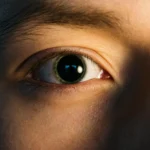Dual diagnosis is a condition where a person suffering from mental health issues also suffers from substance addiction. This is sometimes uncovered when a patient seeks treatment, as health care providers try to get a deeper understanding of the patient’s life. It was originally believed, and still is in some medical circles, that mental health disorders are unrelated to alcohol and drug addiction.
However, many health care providers have changed their stance on this issue and now believe both afflictions must be treated simultaneously. Patients labeled with this are generally considered to be more difficult to treat, but that shouldn’t discourage those individuals from seeking the help they need.
How to Define Dual Diagnosis
Dual diagnosis does not have one set combination, which is another part that makes it more difficult to treat. There is no set definition for dual diagnosis, other than the combination of mental health affliction and addiction. This can vary widely, which is why it is so important for healthcare professionals to get a more personalized understanding of each individual. This allows them to treat each patient’s specific combination of needs.
How to Treat Dual Diagnosis
For dual-diagnosis patients to be successful in their recovery, both issues need to be treated simultaneously: their addiction and their mental health affliction. This can be a challenge not only for the health care provider but for the client as well. Simultaneous therapy can be draining to the individual, which is why it’s important to find a facility that is versed in handling these types of procedures.
If you or someone you love is seeking treatment and has received a dual diagnosis, you’ll want to seek a center with a skilled healthcare professional with a specific background in treating these types of patients. California Recovery Center is uniquely equipped to treat dual-diagnosis patients. If you’re looking to begin your recovery journey and treatment, reach out to us today!




